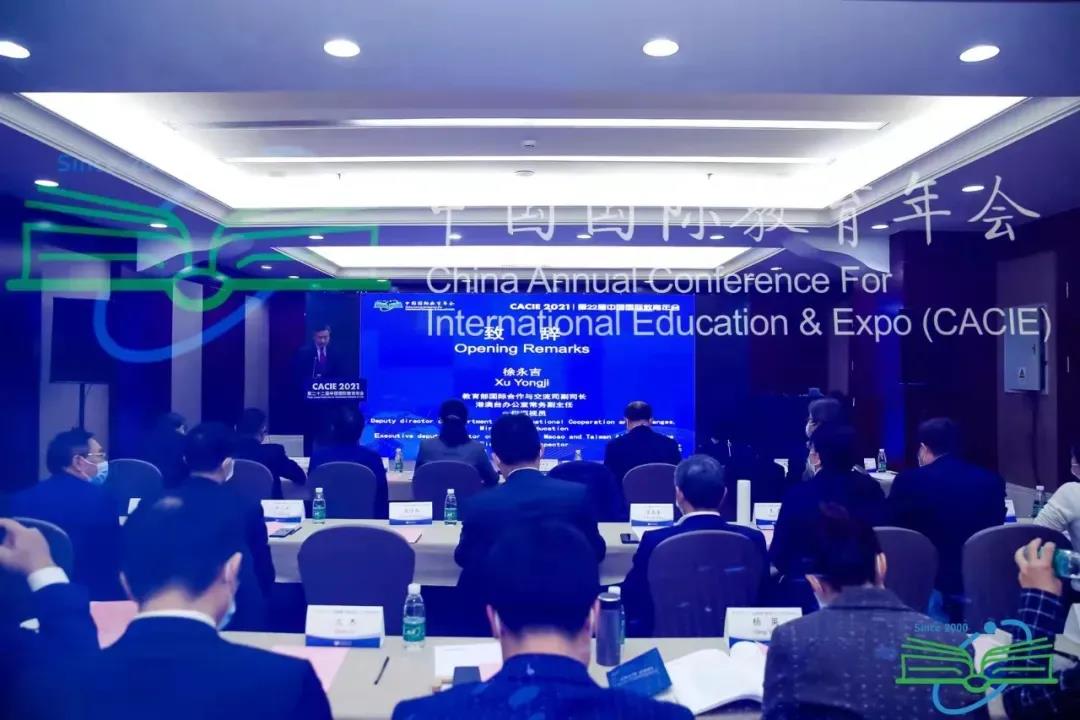
The Forum on the High-quality Development of Belt and Road International Education Exchange was held in Beijing on October 22.
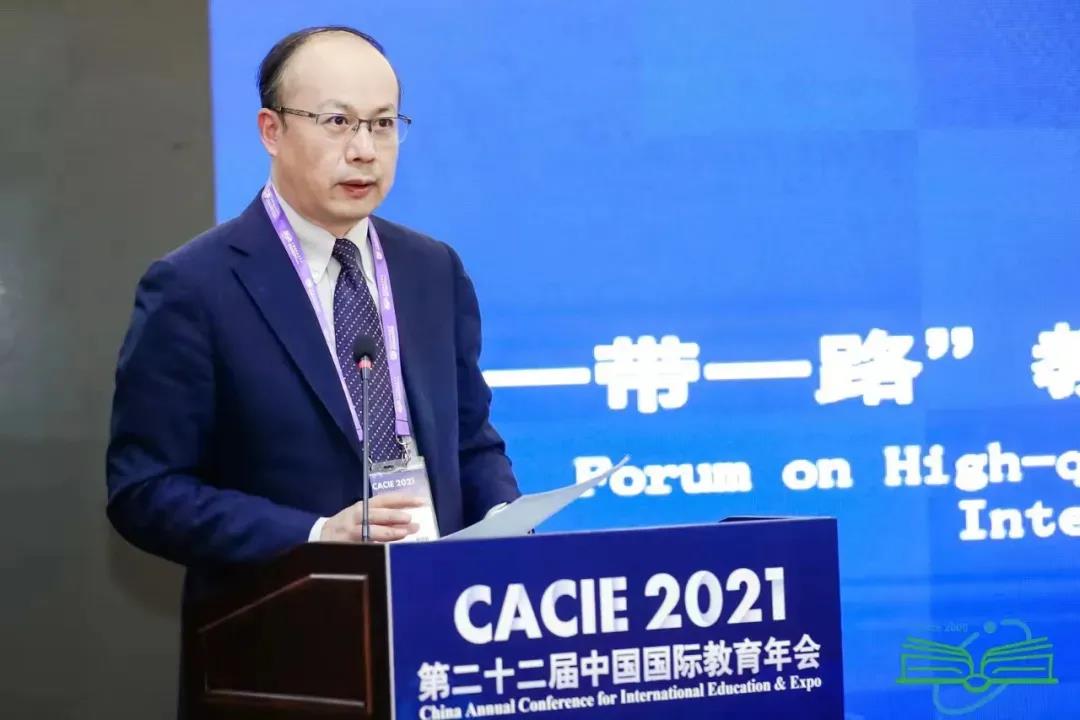
Chen Zhimin, chair of Belt & Road Education Committee of China Education Association for International Exchange (BREC-CEAIE) and vice president of Fudan University, delivered opening remarks at the forum. He said that BREC will endeavor to strengthen coordination to create an all-round platform, devote greater energy to research on governance, turn the forum into an influential mechanism and mobilize all participants to facilitate the opening-up of education, and promote China's international education exchange to better serve national strategies.
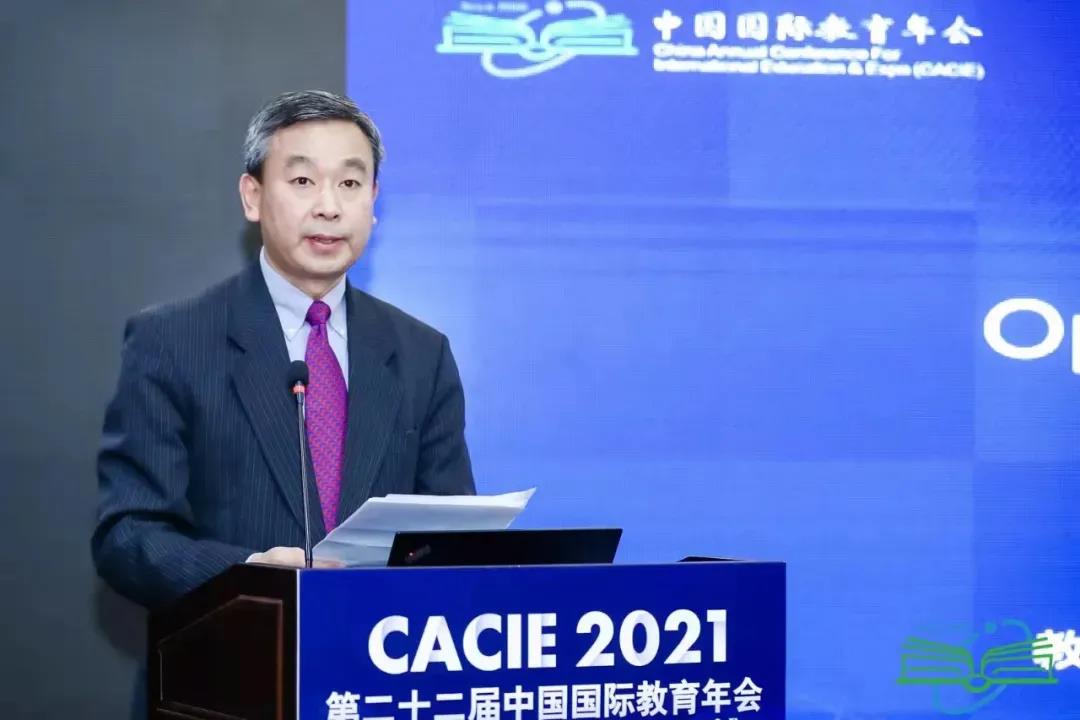
Xu Yongji, deputy director of the Department of International Cooperation and Exchanges of the Ministry of Education(MOE), pointed out that the Belt and Road Initiative(BRI) is an important platform to promote the building of a community with a shared future for mankind. It has played an important role in enhancing student mobility, strengthening policy communication, accelerating education cooperation and deepening language cooperation. MOE will further promote the cooperation on education under BRI. He encouraged universities along the Belt and Road to deepen international exchanges and cooperation in education aiming for high-quality development as well as steady and long-term progress.
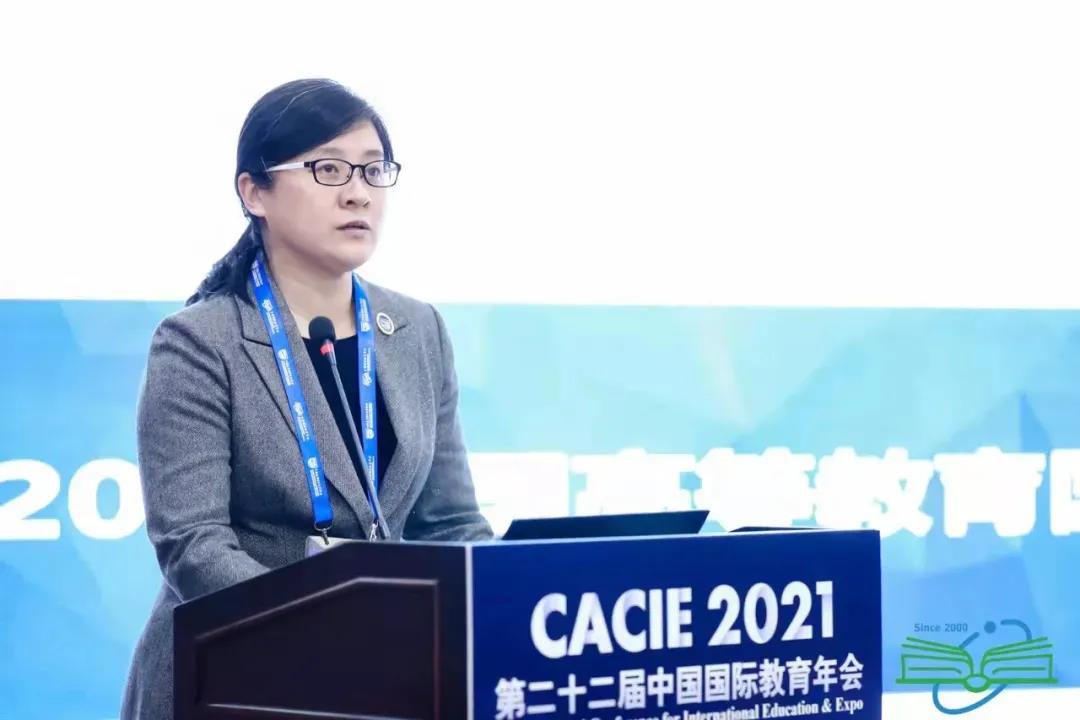
An Yan, deputy secretary general of CEAIE, interpreted the abstract of the “Investigation Report on the Internationalization of Education in China in 2021” in three aspects: overview of the investigation, conclusions and findings, existing problems and countermeasures. She offered suggestions for universities on their mechanisms, education, overseas professor recruitment, institutional innovation and changes that can be made to adapt to the pandemic, and suggestions for vocational and technical colleges on their strategic planning, mechanisms and education.
The first session, moderated by Chen Zhimin, focused on the discussion of how to implement the Belt and Road Education Action Plan to promote the opening-up of education.
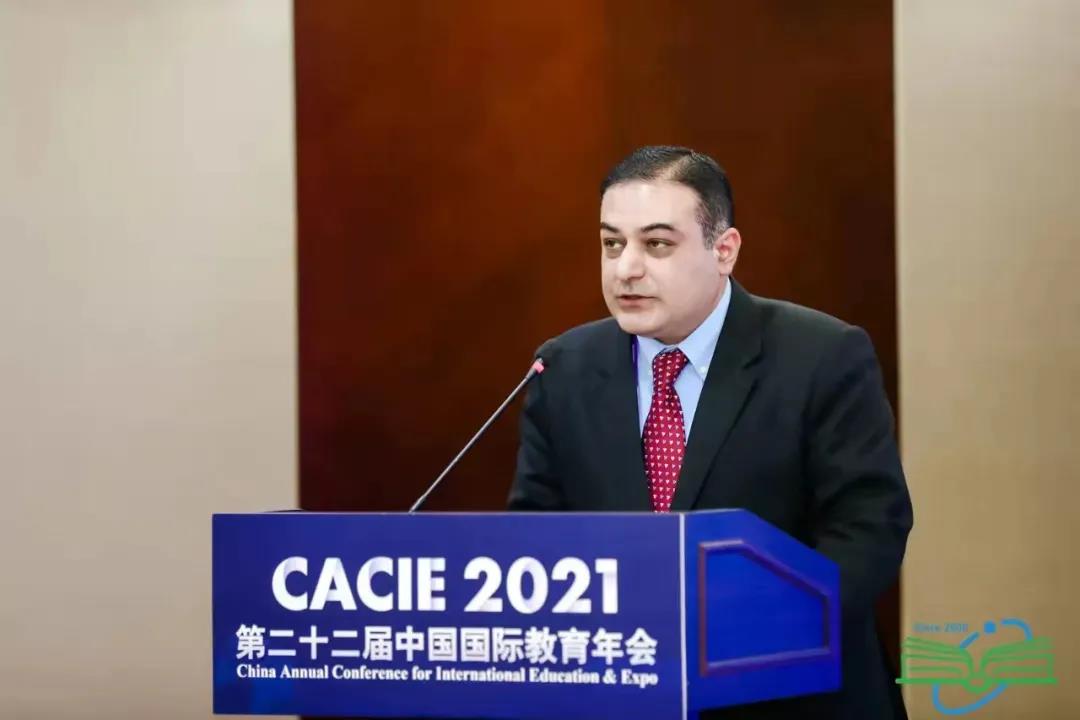
Education Attaché at Pakistani Embassy in China Muhammad Suleman Mahsud introduced the China-Pakistan cooperation in carrying out the Belt and Road Education Action Plan. He briefed the conference on the achievements of the bilateral cooperation in the field of education and progress in higher education collaboration under BRI .
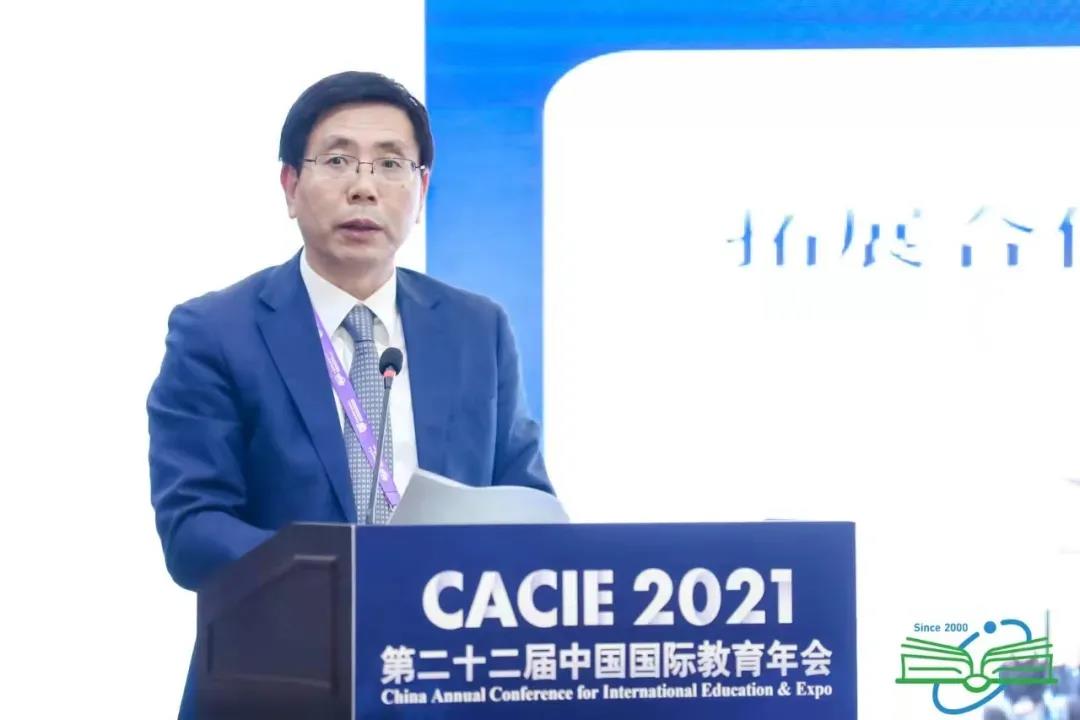
Zheng Shuiquan, vice chair of Council of Renmin University of China (RUC), said RUC has accomplished a lot in the international exchanges under BRI in recent years. Through enhancing partnerships, strengthening academic research, improving discipline development, stepping up exchange mechanisms, and participating in global governance, RUC will further promote Belt and Road educational cooperation.
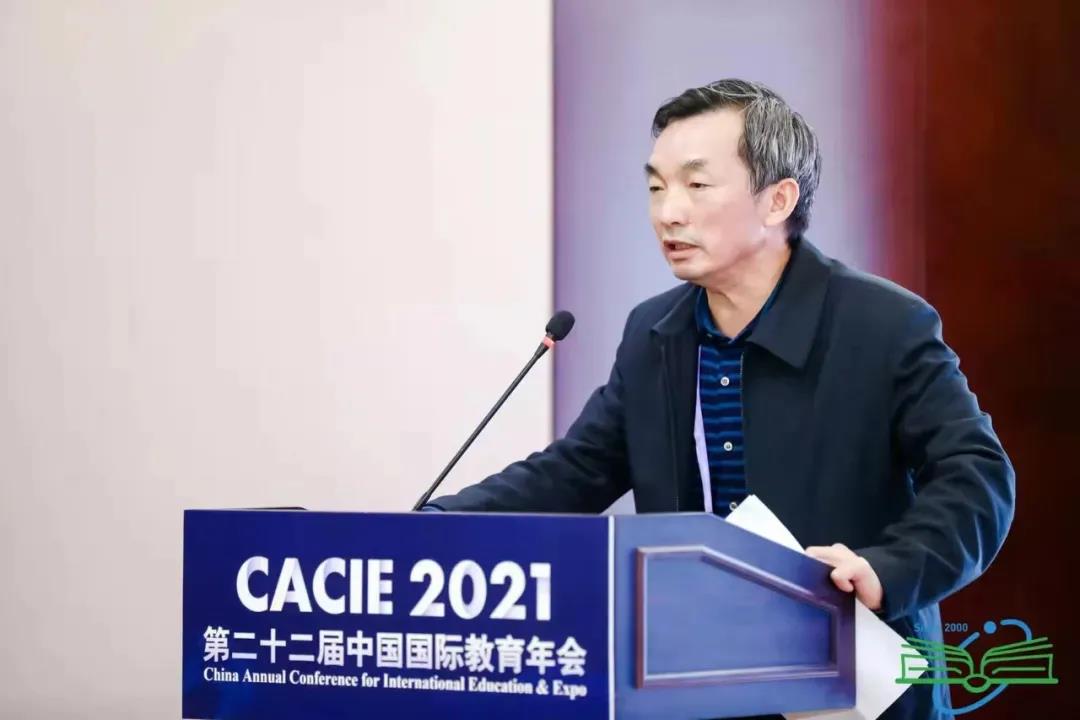
Yang Zeyu, vice president of Yunnan University, pointed out universities should conduct international exchanges and cooperation which serve national strategies. He said Yunnan University is striving to create a country-specific research base focusing on South Asia and Southeast Asia, while strengthening talent fostering and innovating cooperation mechanisms.
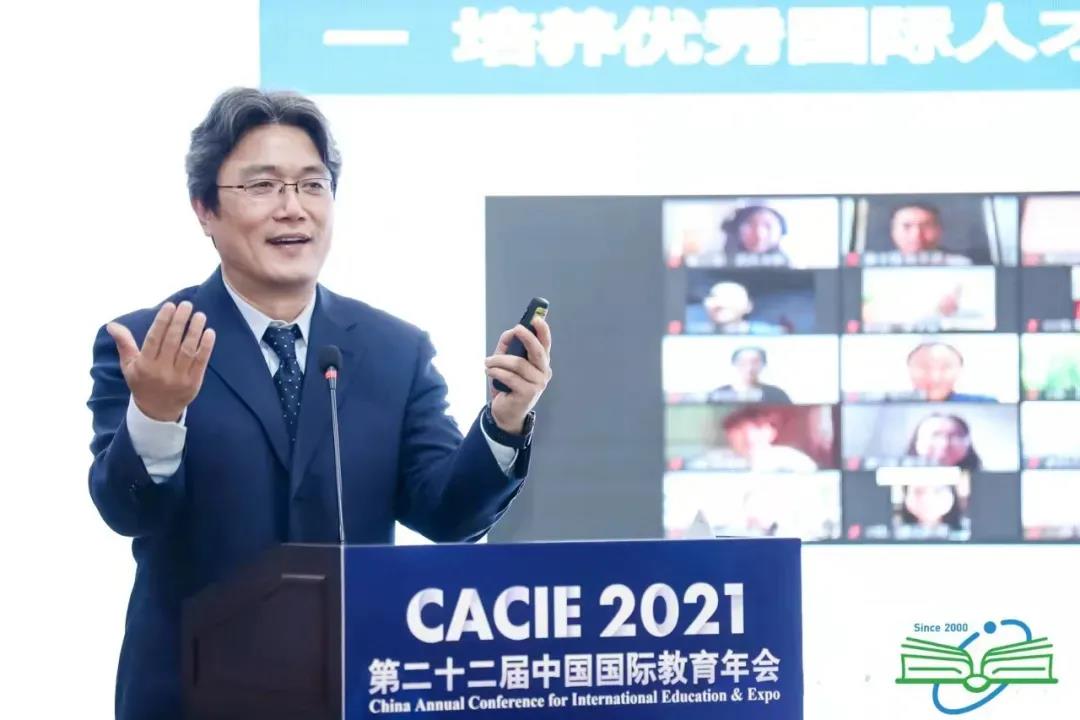
Zhang Baojun, vice president of Beijing Language and Culture University (BLCU), proposed that BLCU will build a comprehensive framework for overseas Chinese language education and facilitate faculty and student exchanges. He suggested that universities at home and abroad should continue to strengthen cooperation in the face of a complex global landscape, improve the fostering of talents to meet the needs of the new era, and build more platforms for people-to-people exchanges.
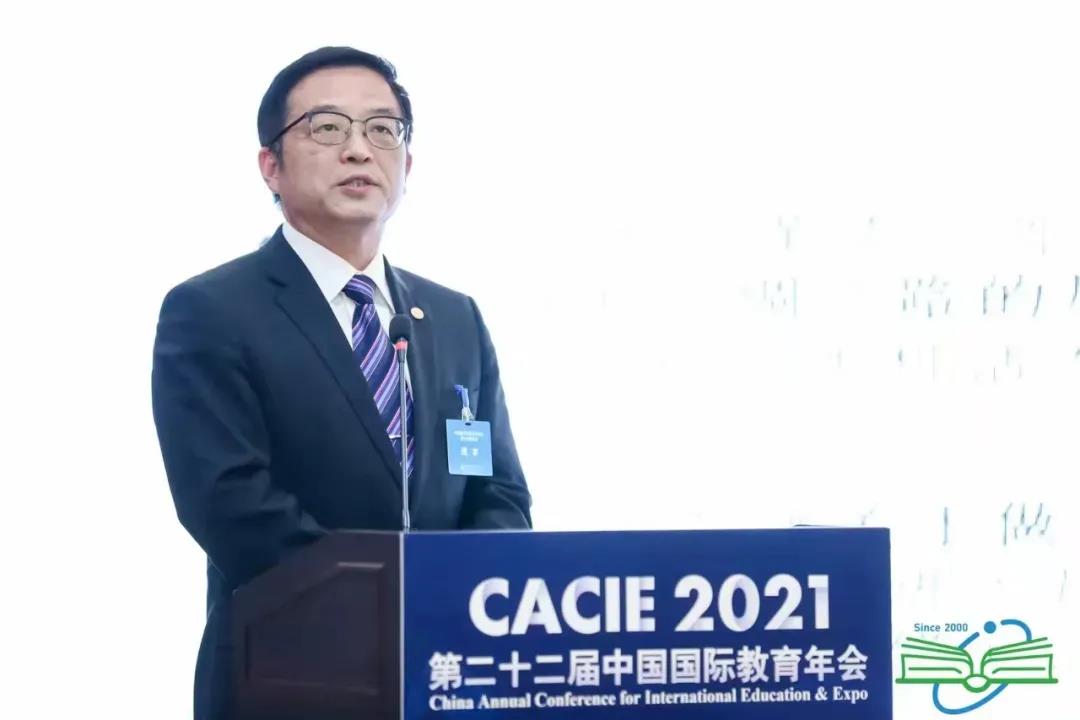
Shen Jie, dean of International College at Zhejiang University (ZJU), made an introduction to the BRI College launched at ZJU. According to Shen, ZJU has set up teaching bases for international students from countries along the Belt and Road and multiple international cooperation programs for high-level talent fostering.
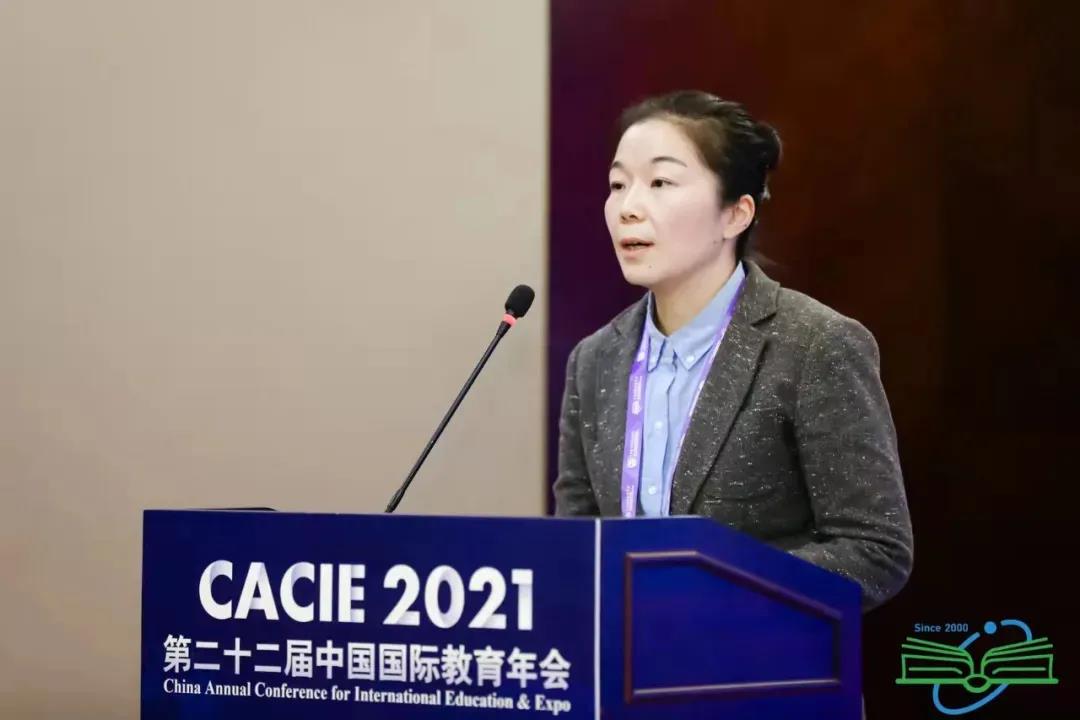
Yang Ying, director of International Cooperation and Exchange Department of China University of Mining and Technology, Beijing, pointed out that to boost the development of global educational exchanges, it is fundamental to forge platforms, and scientific research cooperation should be the starting point and talent training the goal.
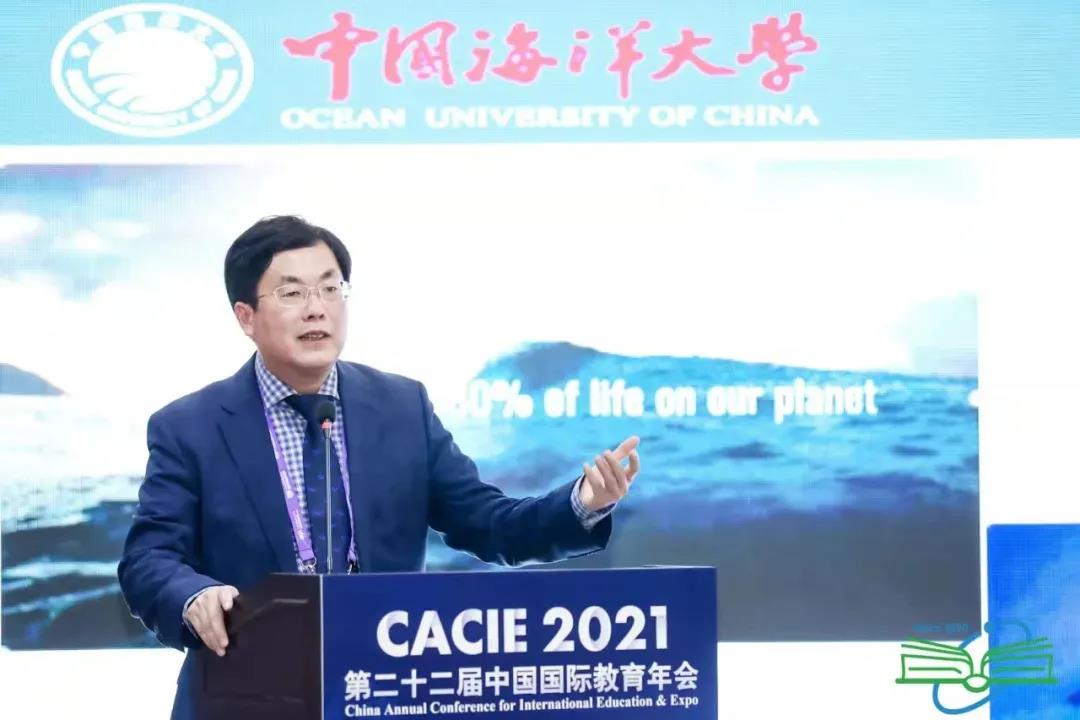
Li Weidong, director of the International Cooperation and Exchange Department of Ocean University of China (OUC), said as a comprehensive university with particular strengths in oceanography and fisheries science, OUC will enhance the cooperation with the world’s top maritime universities and institutions and facilitate exchanges with countries and organizations along the Belt and Road.
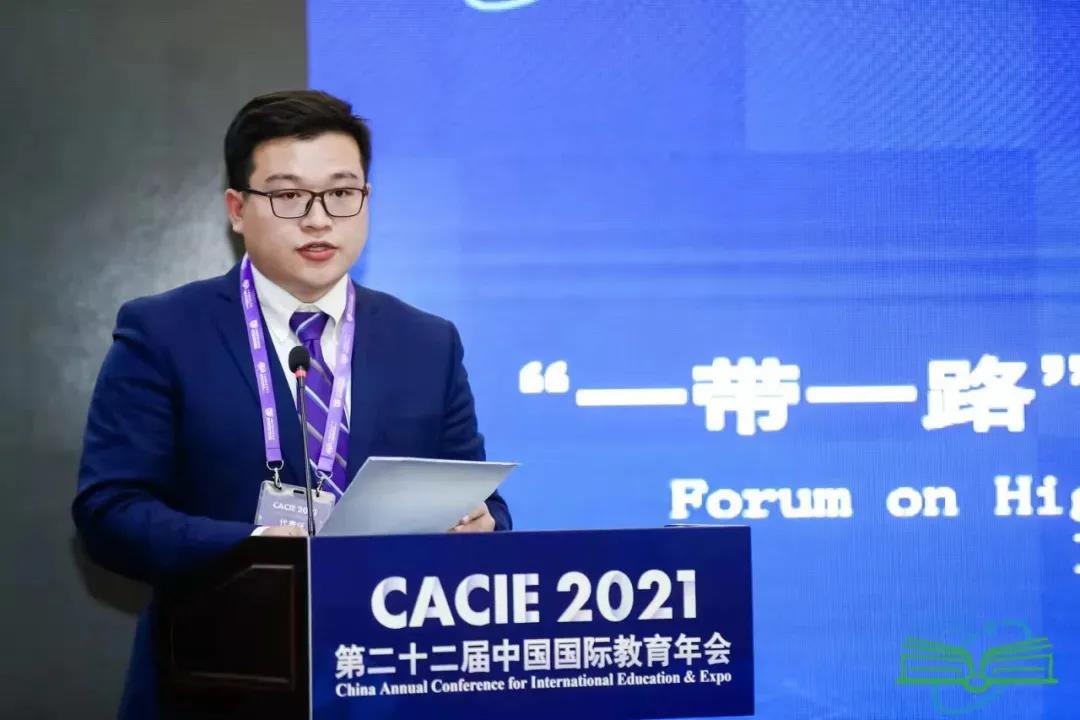
Wang Dawei, deputy dean of the International School of Hohai University (HHU), shared HHU’s experience aligning its efforts with BRI, assisting the overseas operation of businesses from different sectors, and carrying out people-to-people exchanges.
The second session, moderated by Secretary General of BREC-CEAIE Chen Yugang, focused on the discussion of how to step up international cooperation in vocational education to boost high-quality Belt and Road cooperation.
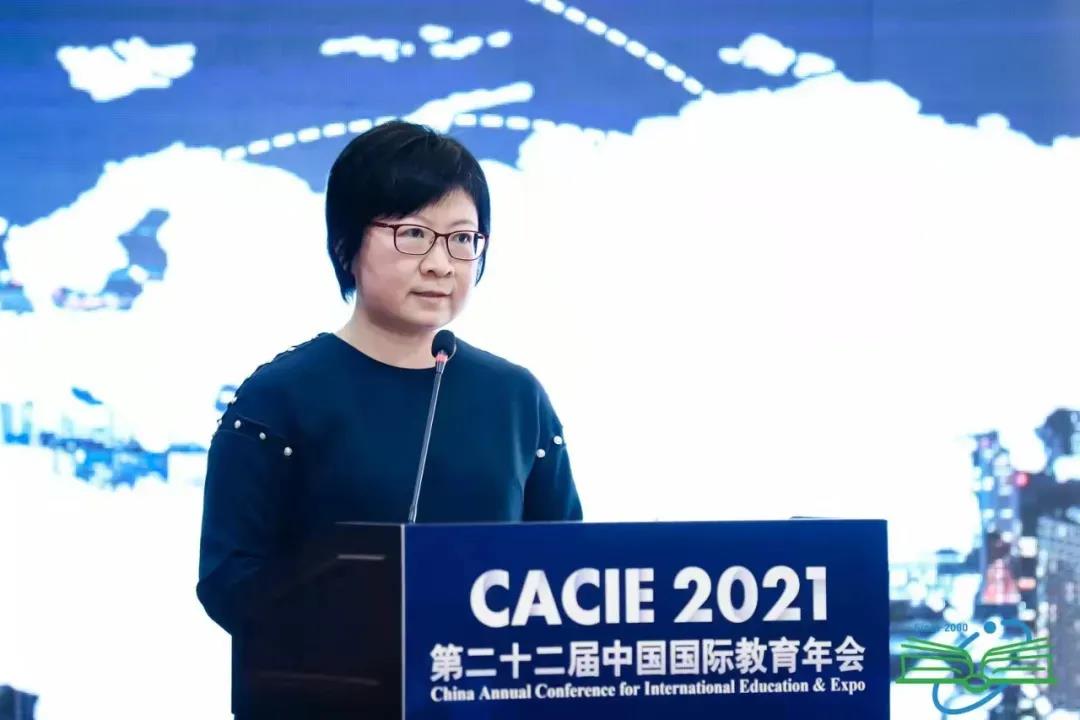
Pasupha CHINVARASOPAK, minister counsellor of Science and Technology Section of the Royal Thai Embassy in China, pointed out that the technological progress and the global crisis are reshaping the demand for new skills in labor markets, and vocational education is now a promising way to address educational challenges. To this end, she suggested that social networks provide more convenience for vocational course design to make vocational education a popular choice of higher education.

Gong Fanghong, president of Wuxi Institute of Technology, shared the institute’s experience in optimizing the ways of enhancing international cooperation, strengthening international talent fostering, enhancing the capability to serve national strategies, and promoting people-to-people exchanges between China and other countries.

Liang Kedong, president of Jinhua Polytechnic, stressed that to facilitate international cooperation in vocational education, vocational institutions should adhere to the principle of opening up to the rest of the world, build platforms for international exchanges, and set up standards jointly formulated by universities and enterprises.
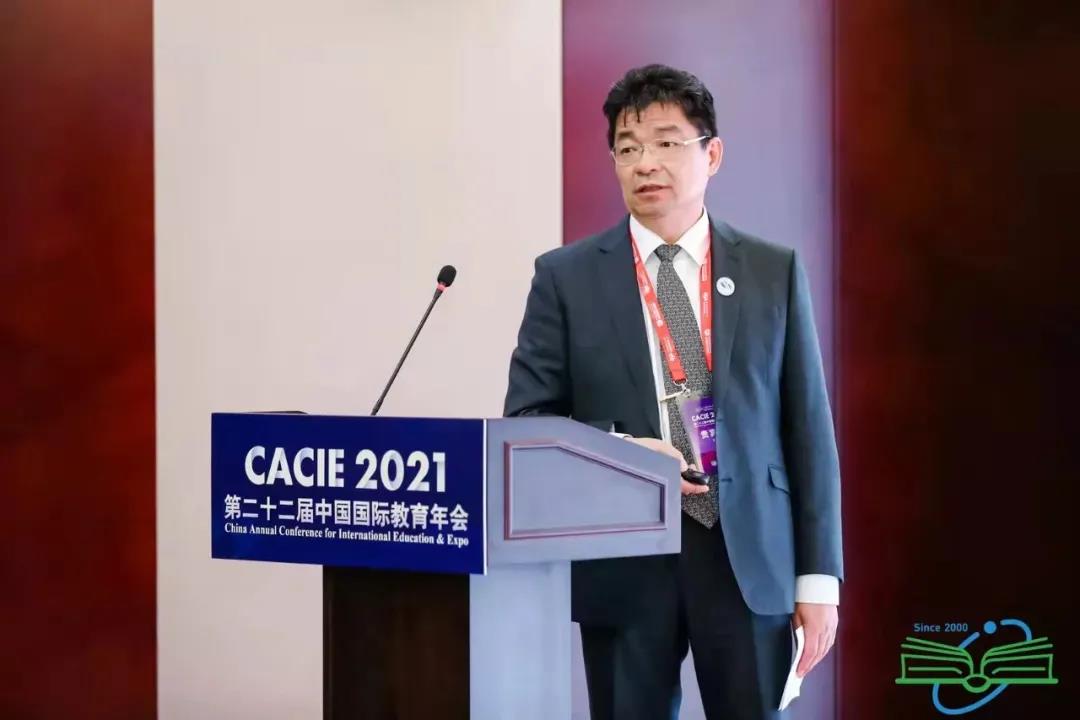
Huang Tao, chair of the council of Guangdong Polytechnic of Water Resources and Electric Engineering, briefed the conference on the polytechnic’s attempts in strengthening the international cooperation in education through resource sharing, technical assistance, international student enrollment, international exchanges, etc.
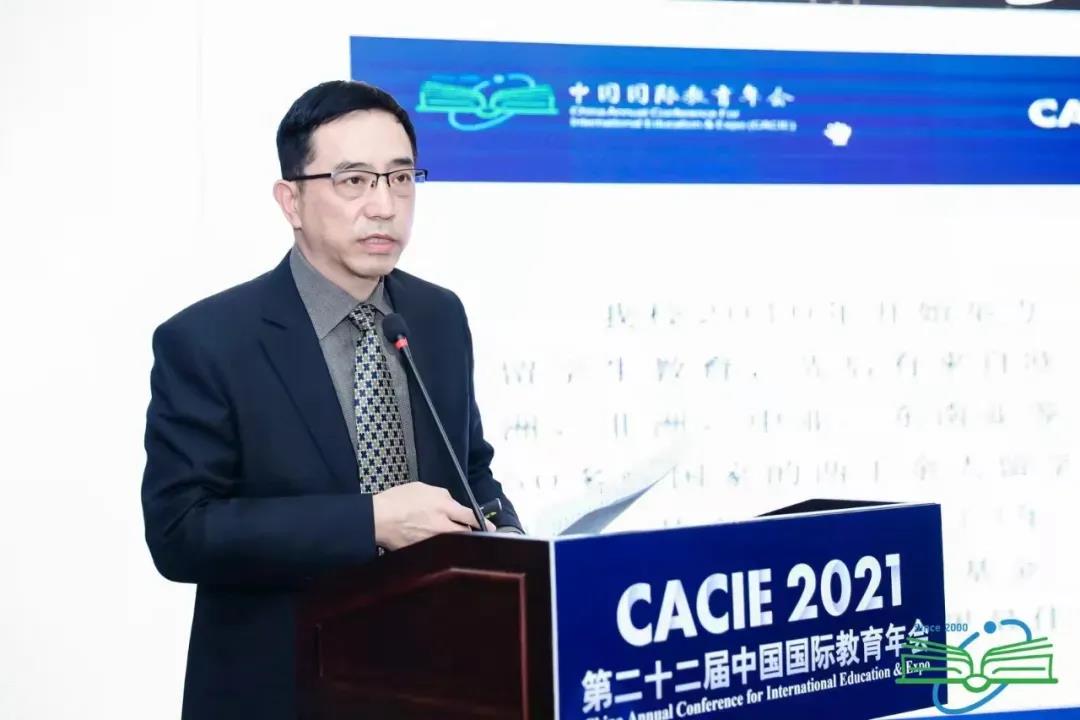
Lu Xiaoping, president of Beijing Information Technology College shared the experience in enrolling international students as well as the common problems in running universities overseas, including policies and regulations, governance structure, quality control, etc.
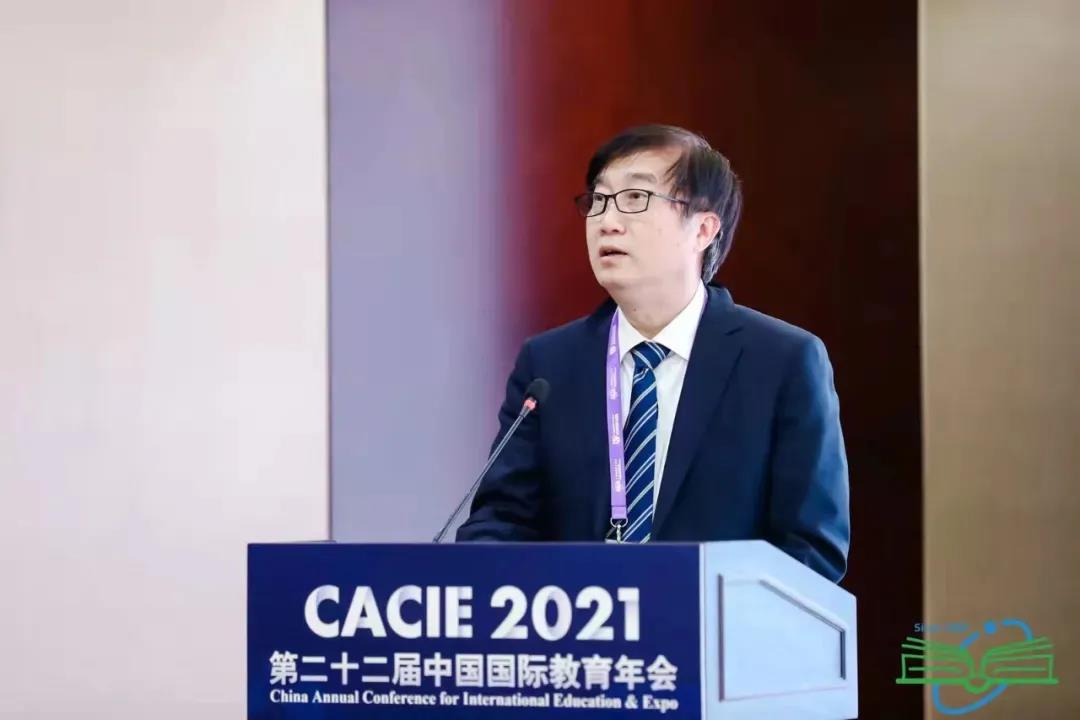
Chen Bin, vice president of University of Shanghai for Science and Technology and president of Shanghai Publishing and Printing College, introduced the measures for international vocational education under BRI, including collaborations with foreign universities and enterprises in launching educational programs and overseas internship bases.
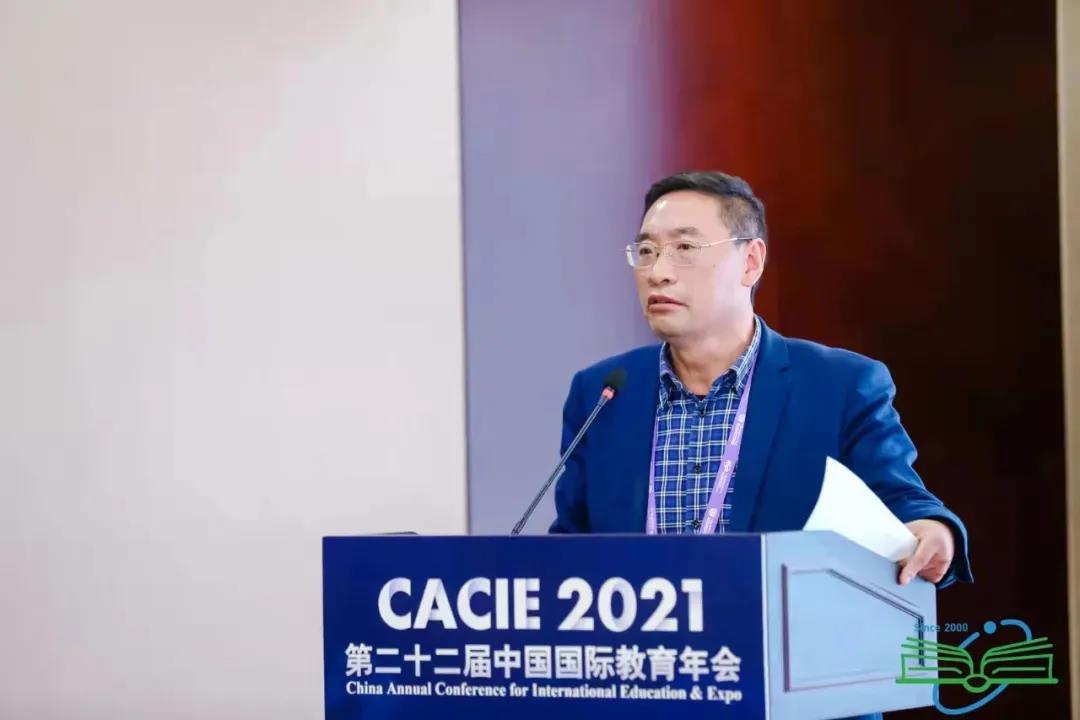
Wu Youfu, president of Guizhou Communications Polytechnic said the Polytechnic has made great effort in boosting the cooperation between China and ASEAN countries, seeking support from other Chinese universities, helping standardize the process of international exchanges, and promoting cooperation among universities, enterprises and local governments in talent fostering.
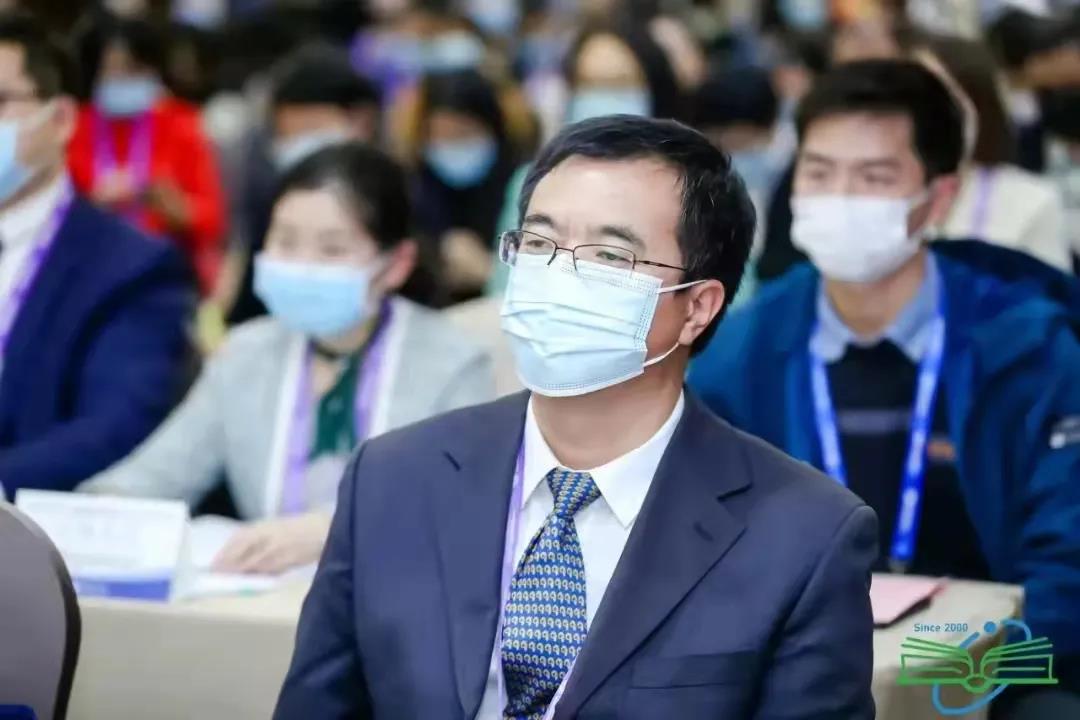
Wang Xin, president of Shandong Institute of Commerce and Technology, pointed out that the institute has played an active role in providing service for countries along the Belt and Road, building a community of shared future, and strengthening technology-enabled international cooperation, service, research and exchanges.
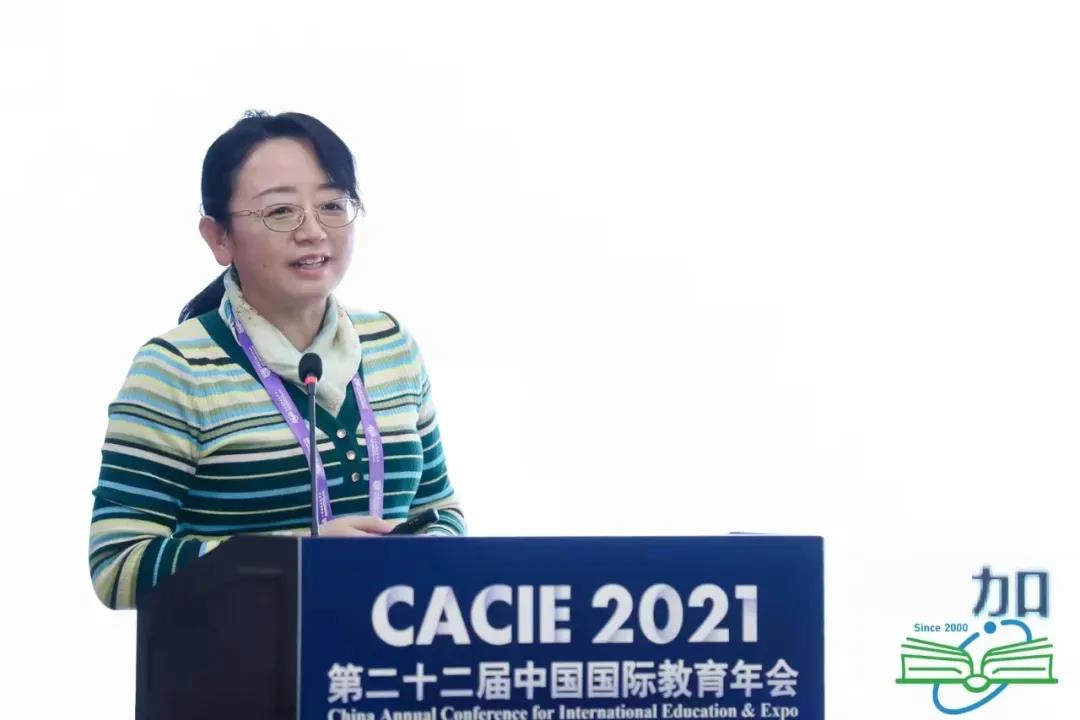
Chen Yugang said in his closing speech that the forum reflects the fruitful achievements in “Belt and Road” educational cooperation, boosting our confidence in promoting China’s educational opening-up and providing inspiring experience for promoting the "Belt and Road" international educational exchanges. He encouraged higher education institutions to continue to promote the high-quality development of international education cooperation.






